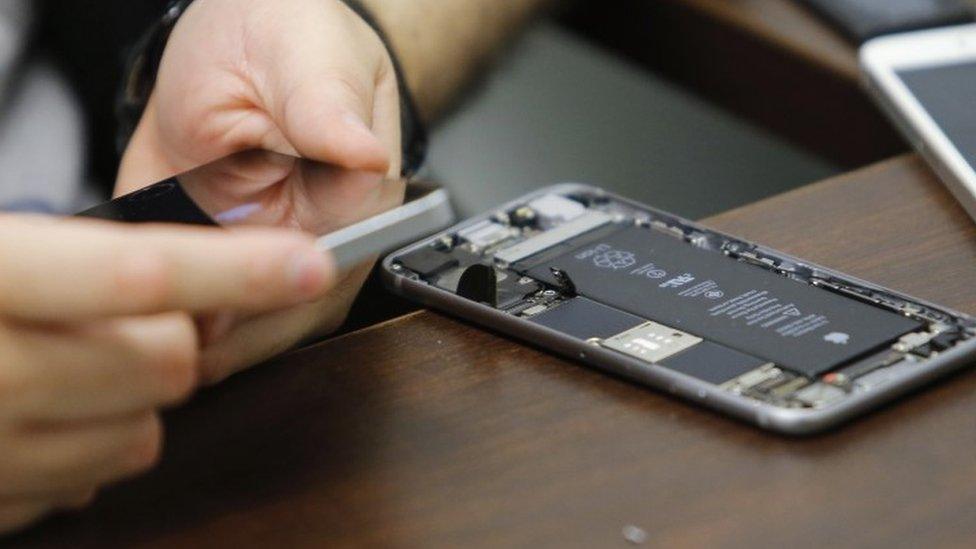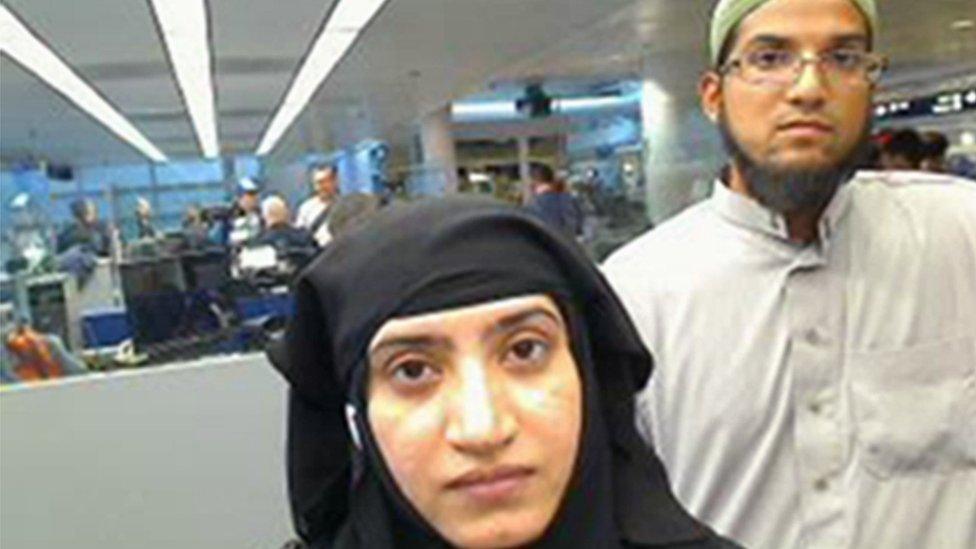US government drops another iPhone case against Apple
- Published

Apple says it has received 5,000 requests for help gain access to iPhone data in 2015
The US government has dropped a case against Apple that sought to compel the company to provide access to an alleged New York drug dealer's locked iPhone.
The Department of Justice said Apple's help was no longer necessary as the passcode had been obtained.
A similar case involving a phone used by the San Bernardino gunman was dropped when the FBI got help from a third-party to unlock the handset.
The DoJ denied either case was about setting a court precedent.
The cases revolve around cracking the four-digit security number that accesses the phone without triggering a security feature that erases all data after 10 incorrect guesses.
Reasonable assistance
The FBI has not revealed who helped it to unlock the iPhone of San Bernardino killer Syed Rizwan Farook - but, last week, it emerged it had probably paid more than $1.3m (£900,000) for the service.
Farook and his wife killed 14 in San Bernardino, California, in December. Both were shot dead by police.
The FBI argued that it needed access to the phone's data to determine if the attackers worked with or were supported by other people and were planning other targets.
Meanwhile, in Massachusetts, Apple has been ordered to help the FBI gain access to data on an iPhone belonging to an alleged Boston gang member accused of shooting a rival.
The judge ordered Apple to give "reasonable technical assistance", but Apple has not complied.
According to Apple, it received more than 5,000 similar requests from the government in the first six months of 2015.
- Published29 March 2016

- Published22 April 2016
